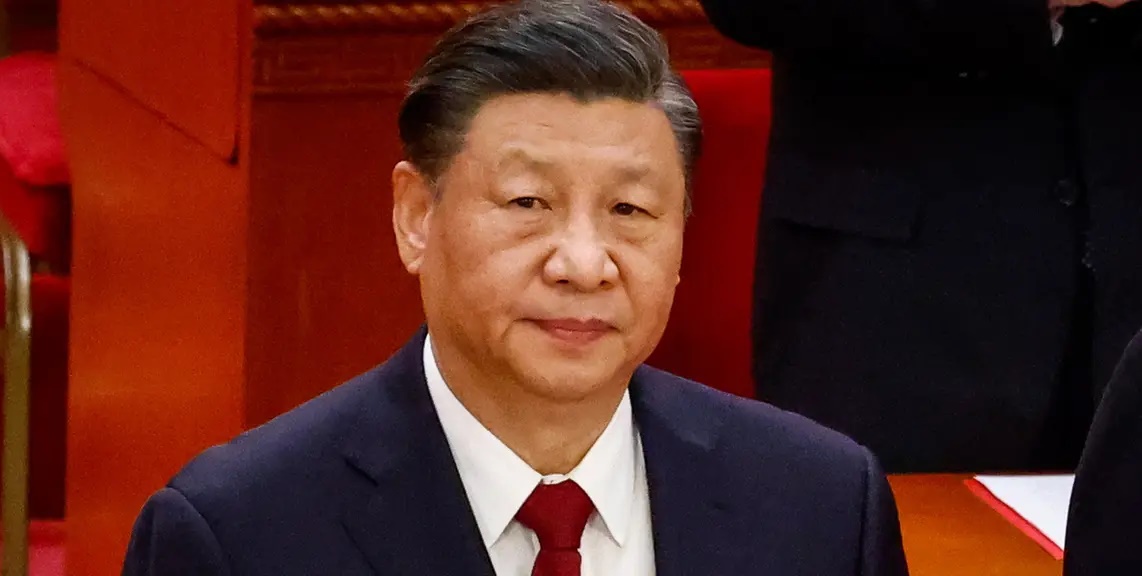China promised to work for peace. A special envoy should travel to Ukraine for this purpose.
For the first time since the start of Russia’s war of aggression against Ukraine, Ukrainian President Volodymyr Zelenskyy and China’s head of state and party leader Xi Jinping have spoken on the phone. In the conversation, Xi assured that his country would work for negotiations and peace. But the People’s Republic still does not condemn the Russian invasion in clear terms.
According to a spokesman for the Ukrainian President, the call lasted about an hour. In it, Xi Zelenskyy assured that China regards respect for Ukraine’s sovereignty and territorial integrity as the basis for political relations between the two countries, the Chinese state television quoted the President of the People’s Republic as saying.
According to the Chinese state media, Xi did not speak of a war in Ukraine, but of “complicated developments in the Ukraine crisis”. China’s head of state urgently warned against a further, even nuclear, escalation of this “conflict”. “There are no winners in a nuclear war,” Xi warned. Everyone involved must “concentrate on their future and their destiny and that of all mankind” and should therefore behave calmly and exercise restraint.
China wants to send special envoy to Ukraine
Xi stressed that China “always stands on the side of peace” and will work to “promote peace and negotiations.” With this goal in mind, the Chinese government wants to send its special envoy for Eurasian affairs to Ukraine, who will hold talks “with all parties interested in peace”. In addition, China wants to provide Ukraine with humanitarian aid “as far as possible”.
China had already offered itself as a possible mediator and presented a twelve-point position paper in February in which the People’s Republic called for a ceasefire in Ukraine and negotiations between the conflicting parties. However, China has been sharply criticized by the West for never condemning the Russian invasion of Ukraine.
“No party in Ukraine crisis”
In a phone call with Zelenskyy, Xi also emphasized: “China did not create the Ukraine crisis and is not a party to it.” His country will “neither sit idly by nor pour fuel on the fire, let alone try to profit from it”.
Chinese Foreign Minister Qin Gang had already used the formulation that he did not want to pour oil on the fire when Federal Foreign Minister Annalena Baerbock was in mid-April for her inaugural visit to China. The Greens politician once again accused the Chinese government of not using its strong influence on Russia enough to put an end to the war against Ukraine.
Xi did not respond to criticism from the West towards Zelenskyy. However, he emphasized that his country always acts “fairly and honestly” with regard to the “Ukraine crisis” – and that “dialogue and negotiations” are the only viable way out of the conflict.
Ukraine appoints ambassador to China
Selenskyj himself spoke on Twitter of a “long and significant” conversation with the Chinese head of state, which will hopefully give a “strong impetus” to bilateral relations between the two countries. Shortly after the call, he announced the appointment of Pavlo Ryabikin, a former minister of strategic industries, as the new ambassador to China.
The Russian side reacted cautiously to the talks between Zelenskyy and Xi. The spokeswoman for the Russian Foreign Ministry, Maria Zakharova, only said that her government “takes note of the willingness of the Chinese side to strive for a negotiation process”.
During the Chinese head of state’s recent visit to Moscow, Russian President Vladimir Putin himself praised the People’s Republic’s “peace initiative”. At the same time, both countries assured each other that they wanted to further expand their joint “strategic partnership”. Since the start of the war against Ukraine and subsequent Western sanctions, Russia has become China’s largest oil supplier.

 North Korea tests suspected intercontinental missile
North Korea tests suspected intercontinental missile International Criminal Court: Mongolia ignored Putin’s arrest warrant during visit
International Criminal Court: Mongolia ignored Putin’s arrest warrant during visit Taiwan: 70 trapped miners rescued
Taiwan: 70 trapped miners rescued Dozens of people trapped in tunnels
Dozens of people trapped in tunnels